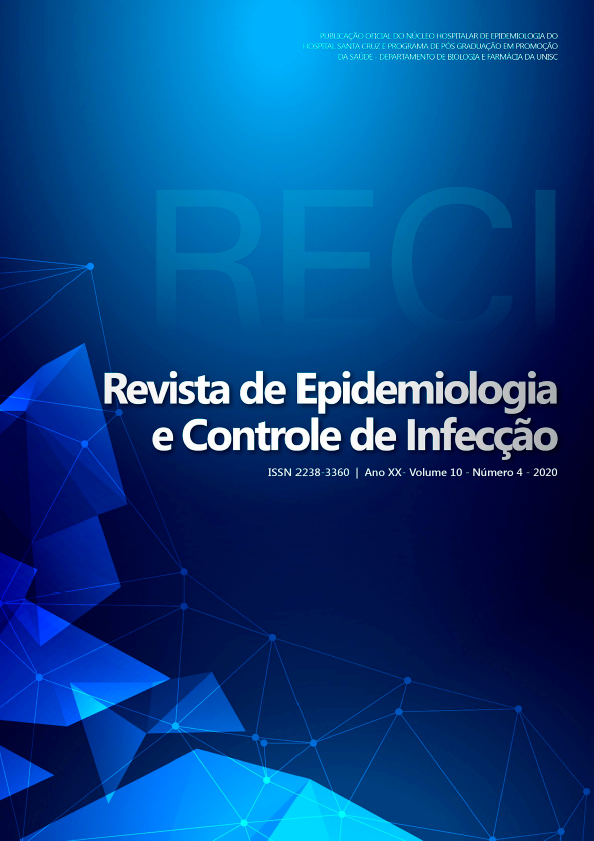AIDS incidence in Rio Grande do Sul in elderly from 1997 to 2017: an ecological study
DOI:
https://doi.org/10.17058/reci.v10i4.15519Palabras clave:
Disease Notification, Health of the Elderly, Acquired Immunodeficency Syndrome, SexualityResumen
Introduction: Rio Grande do Sul is among the Brazilian states with the highest percentage of elderly people, in addition, high rates of HIV / AIDS have been verified in the general population, however, there are few scientific investigations exploring this subject. Objective: To identify the annual incidence of AIDS diagnoses in the population aged 60 years or older residing in the state of Rio Grande do Sul (RS), Brazil, from 1997 to 2017 and also to compare the sex differences in infection rates. Method: Time series ecological study. Results: Between 1997 and 2017, 3,697 AIDS cases were reported in the elderly in RS. In the comparison between 1997 and 2017, the annual incidence of AIDS in the elderly in RS increased from 3.92 to 13.71 / 100,000 inhabitants, an increase of 249.93% (340.49% among men and 171.50%). among women). Conclusions: The percentage of AIDS diagnosed in the elderly in RS was six times higher than in the general population. This may be due to increased life expectancy and other factors related to the sexual behavior of the elderly, such as impotence medications and communication technologies.Descargas
##submission.downloads##
Publicado
Cómo citar
Número
Sección
Licencia
Derechos de autor 2021 Priscila Oliveira da Silva Padilha, Juliana Nichterwitz Scherer, Helena Ferreira Moura, Lisia von Diemen, Joana Correa de Magalhães Narvaez, Felipe Ornell

Esta obra está bajo una licencia internacional Creative Commons Atribución 4.0.
The author must state that the paper is original (has not been published previously), not infringing any copyright or other ownership right involving third parties. Once the paper is submitted, the Journal reserves the right to make normative changes, such as spelling and grammar, in order to maintain the language standard, but respecting the author’s style. The published papers become ownership of RECI, considering that all the opinions expressed by the authors are their responsibility. Because we are an open access journal, we allow free use of articles in educational and scientific applications provided the source is cited under the Creative Commons CC-BY license.


